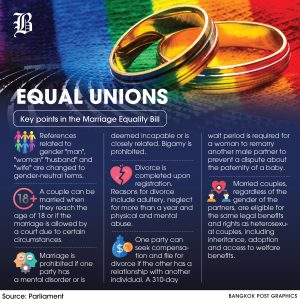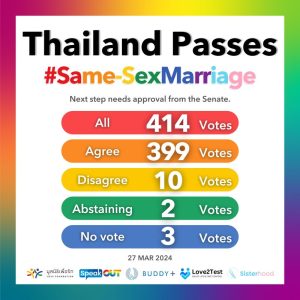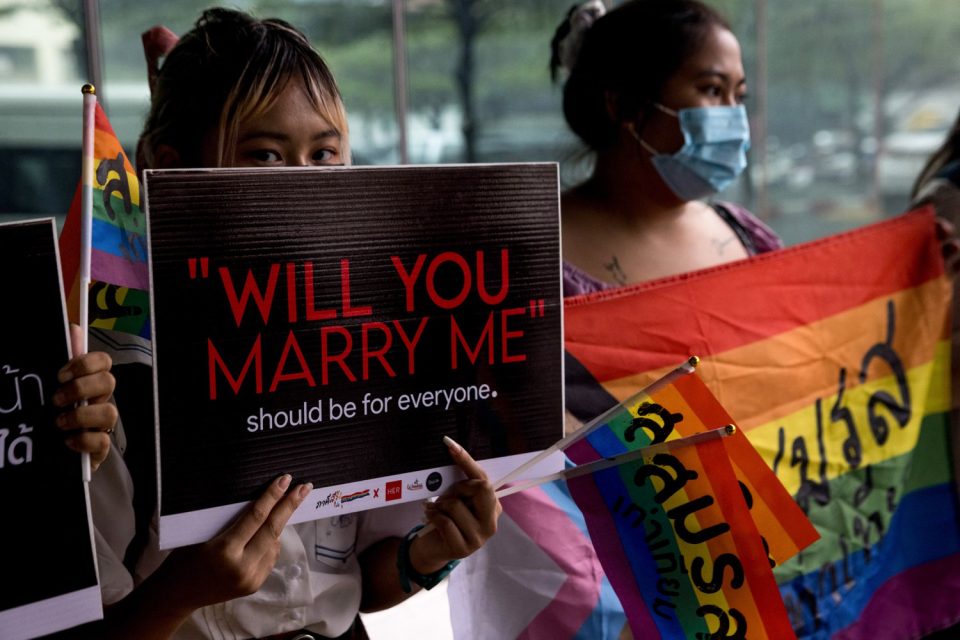Civil society groups are hopeful that the Marriage Equality Bill will be published in the Royal Gazette by October 2, with enforcement set to begin in January next year.
Waaddao Anne Chumaporn, founder of Bangkok Pride, stated on Friday that the bill passed the Senate on June 18, and former Prime Minister Srettha Thavisin submitted it for royal endorsement on July 4. According to the process, a bill must receive royal endorsement and be published in the Royal Gazette within 90 days. Waaddao hopes this will occur by October 2. Once announced, the law would take effect about 120 days later, around early January 2024.
However, if the bill does not receive royal endorsement within the specified period, which is rare, it would return to parliament. In that case, two-thirds of the parliament would need to reapprove it before the prime minister can resubmit it for royal endorsement. Waaddao noted that under Section 146 of the constitution, if the bill does not receive royal endorsement within 30 days, the government has the authority to announce the law’s enforcement. In this scenario, the bill would take effect by January 30, 2025. “We really hope the law will be in use soon,” she added.

Waaddao made these comments during the “From Being Ready to Get Married to the Day We Equally Get Married” event held at the Bangkok Arts and Cultural Centre.
Vitit Muntarbhorn, UN Special Rapporteur on human rights in Cambodia, remarked that once enacted, the law will make Thailand one of only three Asian countries, alongside Taiwan and Nepal, with legal recognition of same-sex marriage.
He emphasized that the Marriage Equality Bill is one of the most gender-inclusive bills, amending 60-70 sections of the Civil and Commercial Codes. Vitit, the first UN Independent Expert on Protection against Violence and Discrimination based on Sexual Orientation and Gender Identity, also highlighted the need to update around 50 other laws, including the Surrogacy Bill, Gender Recognition Bill, and various employment and welfare-related laws, to ensure equal protection for LGBTQ+ communities.

“These amendments are essential to securing the rights LGBTQ+ individuals deserve as human beings, as many current laws remain discriminatory and marginalize LGBTQ+ people,” Vitit said. He also urged other sectors, particularly businesses, to take proactive steps toward a more gender-inclusive society, noting that many companies are already adopting workplace policies that support LGBTQ+ employees and customers.
“An anti-discrimination mindset is vital to creating an inclusive society,” he concluded.




